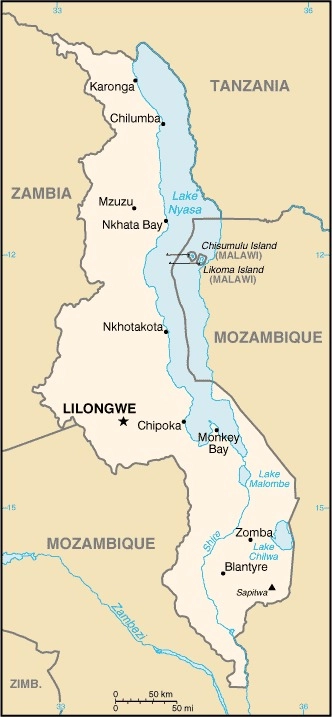
From Republic of Malawi v. Columbia Gem House, decided Wednesday by Judge David Estudillo (W.D. Wash.):
On April 11, 2025, Plaintiff filed an application to conduct discovery for use in contemplated foreign criminal and civil proceedings pursuant to 28 U.S.C. § 1782. Shortly thereafter, the Clerk’s Office sealed this case, based upon guidance provided to Clerk’s office employees that cases of this nature should generally be opened under seal. On May 23, 2025, the Court granted Plaintiff’s application….
Plaintiff argues the Court should unseal this case in its entirety because there is no compelling reason to maintain the seal. Plaintiff contends there is no confidential information in any of the Court filings and argues the presumption of access to judicial records should therefore prevail….
In general, “compelling reasons” sufficient to outweigh the public’s interest in disclosure and justify sealing court records exist when such “court files might have become a vehicle for improper purposes,” such as the use of records to gratify private spite, promote public scandal, circulate libelous statements, or release trade secrets. However, “[t]he mere fact that the production of records may lead to a litigant’s embarrassment, incrimination, or exposure to further litigation will not, without more, compel the court to seal its records.”
Here, Defendants argue Plaintiff will “use and misconstrue the Court’s records and orders to perpetuate an ongoing false scandal” to advance the re-election prospects of politicians in Malawi. Defendants contend the scandal allegedly perpetuated by the Malawian government threatens the future of their business and the livelihood of their employees. Defendants argue the government of Malawi has been using false accusations against them “to whip up public scandal” for years, and have recently resurrected these allegations in the run up to Malawi’s 2025 presidential election. Defendants argue Plaintiff has already used and misconstrued the Court’s rulings for political purposes, citing an article published on a Malawian news website that quotes from the Court’s sealed order granting Plaintiff’s application to conduct discovery pursuant to 28 U.S.C. § 1782. {Plaintiff and Plaintiff’s counsel both deny sharing the Court’s order with any third parties.}
The Court finds Defendants have not met their burden with respect to maintaining the case under seal. The Court notes this case was sealed pursuant to general guidance issued to the Clerk’s Office, not because of any specific, compelling reasons that would justify sealing. In addition, while parties in Malawi may attempt to misconstrue aspects of the Court’s rulings, those parties are capable of publishing derogatory information about Defendants with or without access to Court documents. As Defendants assert, they have been subject to a long running “shakedown” by parties in Malawi that began in 2011 and led to the publication of a report in 2014 alleging Defendants plundered hundreds of billions of dollars of Malawi’s mineral wealth. Moreover, by having access to the positions taken by each party and the Court’s ultimate rulings, the public will have accurate information about findings and conclusions made in this case.
Some backstory from the now-unsealed order granting discovery (though recall that these are all just allegations by the Malawi government):
This matter arises out of an investigation initiated by Thabo Chakaka-Nyirenda, the Attorney General of Malawi, into an alleged scheme to defraud Malawi out of billions of dollars in royalties and taxes related to the mining of rare rubies and sapphires at the Chimwadzulu mine, which is located on Chimwadzulu Hill in the Ntcheu District of Malawi. Malawi alleges Nyala Mines Limited (“Nyala Mines”), which held a license from Malawi’s government granting it the exclusive right to mine rubies and sapphires from the Chimwadzulu mine, engaged in a long-running criminal conspiracy to underreport its gemstone exports and wholesale earnings to reduce the amount owed to Malawi under the relevant license and royalty agreements.
Malawi seeks discovery from Columbia Gem House, Inc. …, a supplier and wholesaler of exotic gemstones with offices in Vancouver, Washington, which Malawi claims will aid its investigation. Malawi contends Columbia Gem has an exclusive agreement with Nyala Mines to sort, cut, and market sapphires and rubies from the Chimwadzulu mine. Malawi also seeks to ascertain whether Columbia Gem is, or was, the parent company of Nyala Mines. Malawi alleges Columbia Gem has knowledge and documents in its possession, custody, or control that are relevant to the investigation….
You can also read the motion to unseal, Columbia Gem House’s opposition, and the reply; the latter two documents also have the parties’ perspectives on the various allegations behind the Malawi AG’s actions.
Back in 2002, I ran a contest to find the countries least referenced in U.S. news sources, and Malawi won the prize in the over 1 million population category, and in the hits per million category (86 hits in 5 years, for a population of 10.7 million at the time). I’m happy to do my part to change that.
Amiad Moshe Kushner and MarcAnthony Bonanno (Seiden Law LLP) and Keith David Petrak (Byrnes Keller Cromwell LLP) represent Malawi.
The post Sealing and Malawi appeared first on Reason.com.



